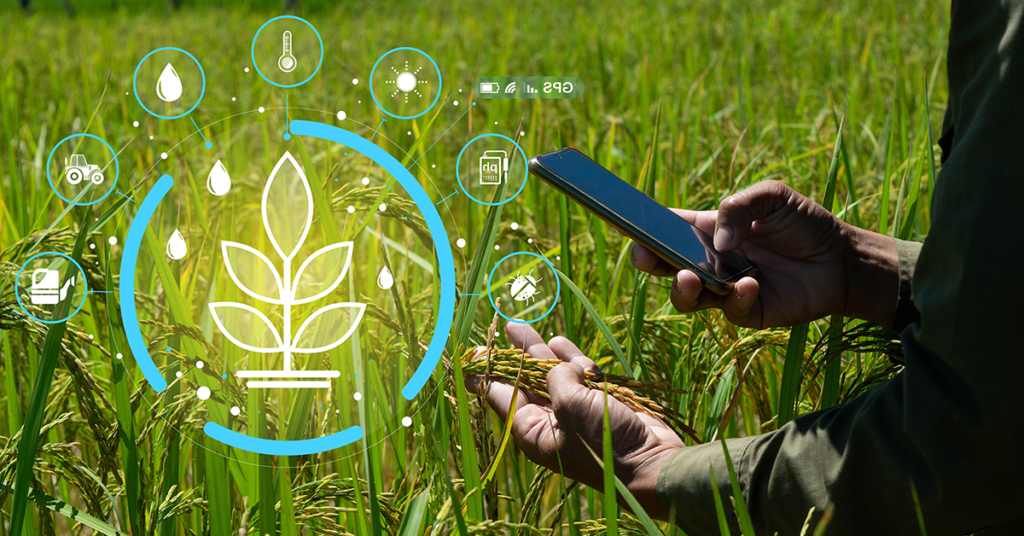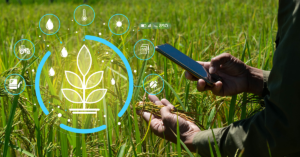Revolutionizing Agriculture: The Role of Artificial Intelligence in Precision Agriculture

In the age-old dance between humanity and the land, a new partner has emerged: artificial intelligence (AI). As the global population continues to grow and the demand for food rises, farmers are turning to innovative technologies to increase efficiency, reduce environmental impact, and optimize crop yields. At the forefront of this agricultural revolution is precision agriculture, a data-driven approach that leverages AI and machine learning to transform the way we cultivate the land and feed the world.
The Need for Precision: Precision agriculture recognizes that one size does not fit all when it comes to farming. Traditional methods of blanket application of fertilizers, pesticides, and water can be inefficient and environmentally harmful, leading to wasted resources and pollution. With precision agriculture, farmers can tailor their practices to the specific needs of each individual plant, field, or livestock, optimizing inputs and maximizing outputs while minimizing waste.
Harnessing the Power of Data: At the heart of precision agriculture lies data—lots of it. From satellite imagery and drone surveys to soil sensors and weather stations, farmers have access to a wealth of information about their fields and crops. AI algorithms process and analyze this data in real-time, providing valuable insights into soil health, crop growth, pest infestations, and more. By combining historical data with current observations, AI can predict future trends and make proactive recommendations to farmers, empowering them to make informed decisions and take timely action.
Optimizing Crop Management: AI enables farmers to monitor crop health and growth with unprecedented precision. By analyzing satellite imagery and drone footage, AI algorithms can detect subtle changes in crop color, texture, and density that may indicate nutrient deficiencies, pest damage, or disease outbreaks. Armed with this information, farmers can intervene early to address problems before they escalate, whether it’s adjusting irrigation schedules, applying targeted treatments, or implementing integrated pest management strategies.
Maximizing Resource Efficiency: One of the key benefits of precision agriculture is its ability to optimize resource use. By deploying AI-powered irrigation systems, farmers can deliver the right amount of water to each plant based on its specific needs, reducing water waste and ensuring optimal growth conditions. Similarly, AI-driven fertilizer application systems can deliver nutrients directly to the root zone of plants, minimizing runoff and leaching while maximizing nutrient uptake. This targeted approach not only conserves resources but also reduces costs and minimizes environmental impact.
Improving Yield and Quality: Ultimately, the goal of precision agriculture is to maximize crop yield and quality. By fine-tuning farming practices based on data-driven insights, farmers can achieve higher yields, greater uniformity, and improved product quality. Whether it’s optimizing planting densities, managing crop rotations, or timing harvests for peak freshness, AI empowers farmers to make decisions that optimize both quantity and quality, meeting the demands of an increasingly discerning market.
Challenges and Opportunities: While precision agriculture holds great promise, it is not without its challenges. Adoption of AI technologies may be hindered by factors such as cost, access to technology, and technical expertise. Moreover, concerns about data privacy, cybersecurity, and ethical use of AI in agriculture must be addressed to ensure that the benefits of precision agriculture are realized equitably and sustainably.
Nevertheless, the potential of AI in precision agriculture is immense. As technology continues to advance and become more accessible, farmers around the world stand to benefit from the transformative power of data-driven decision-making. By harnessing the power of AI to optimize crop management, maximize resource efficiency, and improve yield and quality, we can create a more sustainable and resilient food system for future generations.
In conclusion, precision agriculture represents a paradigm shift in the way we approach farming, leveraging the power of AI to unlock new levels of efficiency, productivity, and sustainability. By embracing this innovative approach, farmers can cultivate the land more effectively, protect the environment, and nourish communities around the world. As we stand on the cusp of a new era in agriculture, the possibilities are as vast as the fields that stretch before us, waiting to be cultivated with care, precision, and ingenuity.




